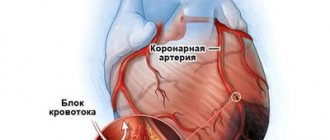Causes of dizziness and noise in the head
There are several main reasons that lead to dizziness and tinnitus:
1. Discirculatory encephalopathy. The most common cause, which affects a large percentage of the population and is chronic. Gradual, progressive impairment of cerebral circulation leads to persistent chronic hypoxia of the brain. Lack of oxygen provokes the death of nerve fibers in the brain, which is accompanied by pain, tinnitus, dizziness and a disturbance in general well-being.
2. Osteochondrosis. A common disease with varied manifestations. With osteochondrosis, intervertebral discs undergo degenerative changes. In particular, cervical osteochondrosis causes pain along the spine and is combined with pain in the head and dizziness due to displacement and protrusion of the vertebrae.
Kazieva Aminat Ziyavovna
Neurologist
Rostov State Medical University
Experience since 2012
3. Arterial hypertension. High blood pressure is often accompanied by a specific clinical picture, which is familiar to many hypertensive patients: headache, weakness, flashing spots before the eyes, dizziness and tinnitus. Such unpleasant symptoms are associated with increased blood flow in the blood vessels, which causes increased pressure on the vascular walls and irritation of pain receptors.
4. Cerebrovascular accidents. Strokes are always accompanied by a difficult and long period of rehabilitation, during which the patient may suffer from dizziness, ringing and tinnitus, and headaches.
5. Anemia. A condition in which there is a decrease in the level of hemoglobin in the blood and its saturation with oxygen leads to hypoxia of organs and tissues, which is accompanied by pallor of the skin, dizziness, noise in the ears, head and frequent fainting.
6. Overwork, chronic fatigue syndrome, insomnia and lack of sleep. Lack of proper rest and workload lead to depletion of the body's physiological resources. Malfunctions in the functioning of many organs and systems begin, which are expressed in weakness, apathy, rapid breathing, pre-fainting, tension headaches and objects spinning before the eyes, tinnitus when the eyeballs move.
7. Hypoglycemia. A condition in which there is a sharp drop in blood glucose levels. This occurs with diabetes or with prolonged restriction of carbohydrates in food.
8. Diseases of ENT organs. Diseases of the auditory analyzer, in particular the inner ear, such as Menier's disease, in addition to pain, hearing loss and tinnitus, are accompanied by disruption of the vestibular apparatus due to increased intralabyrinthine pressure.
9. Migraine. A complex neurological pathology that includes a wide range of manifestations from severe headaches, photophobia, tinnitus and nausea, to loss of orientation.
10. Neoplasms of the central nervous system, epilepsy. Tumors that affect the spinal cord or brain, compress the roots of the spinal nerves, lead to nonspecific symptoms such as double vision of objects in front of the eyes, weakness, nausea, vomiting, loss of consciousness and spinning of objects.
11. Surgeries on the brain or spinal cord. The recovery period after severe surgical interventions entails disorders of the central nervous system.
Kazieva Aminat Ziyavovna
Neurologist
Rostov State Medical University
Experience since 2012
12. Hormonal changes in women: pregnancy and menopause. Those cases when dizziness is physiological in nature and is associated with hormonal changes in the body.
13. Traumatic lesions. After open or closed craniocerebral injuries, as well as injuries to the spine, long-term consequences occur in the form of dizziness, noise in the ears and head. This is due to the displacement of soft tissues and meninges when damaged. Such manifestations are temporary.
14. Motion sickness while driving, long hunger strikes, smoking.
To accurately establish the cause of pathological symptoms and eliminate them, the attending physician must conduct a thorough diagnosis.
Meniere's syndrome
The disease is characterized by problems with the inner ear, which is responsible for balance. The inner ear contains ear stones and fluid. When you move your head, they affect nerve fibers.
- Causes of tinnitus and hearing loss
When the inner ear is injured or inflamed, the amount of fluid in it increases. This leads to increased pressure on the nerve fibers. This disease needs treatment. One effective treatment method is a set of exercises called the Eple maneuver.
Diagnosis of nausea, weakness and noise in the head
When visiting a doctor with complaints of dizziness, headache, nausea, weakness, ringing and tinnitus, the patient first receives a preliminary diagnosis. For this purpose, an examination plan is drawn up, which includes the following studies:
- Comprehensive examination by a neurologist. The doctor conducts special coordination tests that distinguish benign paroxysmal positional vertigo from its other varieties, as well as a neurological examination, checking the condition of the cranial nerves, conditioned and unconditioned reflexes. The specialist conducts a detailed survey of the patient, identifying the main complaints, their location and time of occurrence, and connections with chronic diseases.
- General blood test, biochemical blood test, coagulogram. They are carried out to exclude anemia, acute inflammatory and infectious processes in the body, as well as tumor diseases of the blood and lymph. Also, thanks to these studies, the blood lipid profile, the tendency to thrombosis and vascular atherosclerosis are assessed.
- ECG and blood pressure measurement. Studies reveal a connection between the complaints that have arisen and arterial hypertension.
- X-ray, CT and MRI of the brain and spinal cord. MRI examination has advantages over other diagnostic options, as it shows a layer-by-layer image of all scanned areas. This allows you to minimize diagnostic errors, accurately determine the location and size of the pathological focus, and also conduct an examination in the shortest possible time. Magnetic resonance imaging is the method of choice for formations that do not originate from bone tissue, as well as the gold standard for examination in dyscirculatory encephalopathy.
- Ultrasound of cerebral vessels to identify pathological narrowings and blockages by blood clots.
- An audiogram and examination by an otolaryngologist to rule out problems with the inner ear and vestibular apparatus.
- Electroencephalography. Helps detect areas of epileptic activity.
Meniere's disease: rare, but accurate
Of course, suspecting and diagnosing any disease is the prerogative of a specialist.
Meniere's disease is considered quite rare. In different countries, according to statistics, it affects from 20 to 200 people per 100,000 population. Women are almost twice as likely as men. The average age of patients is 40 years, and it almost never occurs in children.
But for whom does this make it easier if you are faced with the symptoms described above? In addition to Meniere's disease, they can signal other unhealthy and downright dangerous conditions, for example:
- benign positional paroxysmal vertigo;
- vestibular migraine;
- vestibular neuronitis;
- bilateral vestibulopathy;
- functional dizziness;
- stroke;
- brain tumors.
Therefore, if there are obvious disturbing symptoms, without delay, you need to make an appointment at the clinic with a therapist, ENT specialist, or directly at a specialized center. Establishing a diagnosis is not difficult for a specialist, but only after a set of diagnostic examinations.
Treatment of dizziness and noise in the head
The main principle of treatment for dizziness and noise in the head is its cause and mechanism of development. Therapy should be aimed at relieving the patient of the symptoms of the disease.
Drug therapy
If the patient has dyscirculatory encephalopathy, drugs are prescribed that normalize cerebral perfusion through an effect on the cardiovascular system. These are diuretics, beta blockers and vascular agents, as well as neurometabolites.
If symptoms occur due to high blood pressure, the doctor will prescribe antihypertensive drugs that control blood pressure levels and keep them within normal ranges. In this case, beta blockers, ACE inhibitors, calcium channel antagonists and diuretics help well.
For cerebrovascular disorders, nootropics, vasodilators, antiplatelet agents and anticoagulants are prescribed.
Kazieva Aminat Ziyavovna
Neurologist
Rostov State Medical University
Experience since 2012
After suffering injuries, to alleviate the condition, patients are recommended to limit physical activity and emotional stress, as well as symptomatic therapy to alleviate the patient’s condition. For this purpose, painkillers and anti-inflammatory drugs from the group of non-steroidal anti-inflammatory drugs are prescribed during periods of deterioration in health.
If the disorder occurs due to a functional cause, such as a tumor, then prompt surgical intervention is necessary.
If a patient has a migraine, the doctor should prescribe preventative treatment to prevent relapses of attacks, as well as medications to stop new episodes of migraine.
To correct anemia and its consequences, a specialist prescribes iron-based antianemic drugs, which can quickly increase the level of hemoglobin in the blood and relieve the symptoms that arise.
During menopause in women, the symptoms of menopause are corrected by menopausal hormone therapy.
Before a long trip in transport, you need to take special anti-motion sickness medications.
Physiotherapy
Physiotherapeutic procedures help, in addition to drug treatment, to get rid of the disease. The most common in treatment:
- Magnetotherapy.
- Laser therapy.
- Massage and physical therapy.
- Healthy swimming.
- Acupuncture.
With systematic, course use of these therapeutic methods, there is a decrease in the symptoms of the disease and their complete disappearance.
Nutrition
An important aspect in monitoring your health and well-being is your diet. A balanced diet rich in vitamins, micro and macroelements allows you to maintain normal blood counts, weight and nutrient levels in the body. Excluding easily digestible carbohydrates, sugar, fatty and fried foods from your daily diet will help avoid cardiovascular diseases, which lead to a systematic increase in blood pressure, as well as type II diabetes and surges in sugar levels.
Kazieva Aminat Ziyavovna
Neurologist
Rostov State Medical University
Experience since 2012
It is equally important to comply with the daily calorie intake, as well as proteins, fats and carbohydrates in the diet. Daily caloric intake is calculated based on a person’s weight and energy expenditure. With a calorie deficit and abuse of fasting and diets, the body experiences stress, which is accompanied by poor health.
Symptoms of tinnitus
Nausea with weakness, ringing in the ears and dizziness are not uncommon. The noise effect usually has the following characteristics:
- The noise can be felt only on one side or on both sides at once.
- This phenomenon can be episodic or constant.
- The noise may become stronger or weaker when turning the head or bending to the side.
- The noise may be similar to a hum, ringing, hissing, squeaking or even crackling.
- Sensible sounds have a high or low pitch.
- Occurs at certain times of the day.
- This phenomenon can reduce hearing acuity, preventing a person from sleeping and working.
- May cause irritability along with insomnia. The symptoms of dizziness and ringing in the ears are very unpleasant.
Let's consider the reasons for their occurrence.










